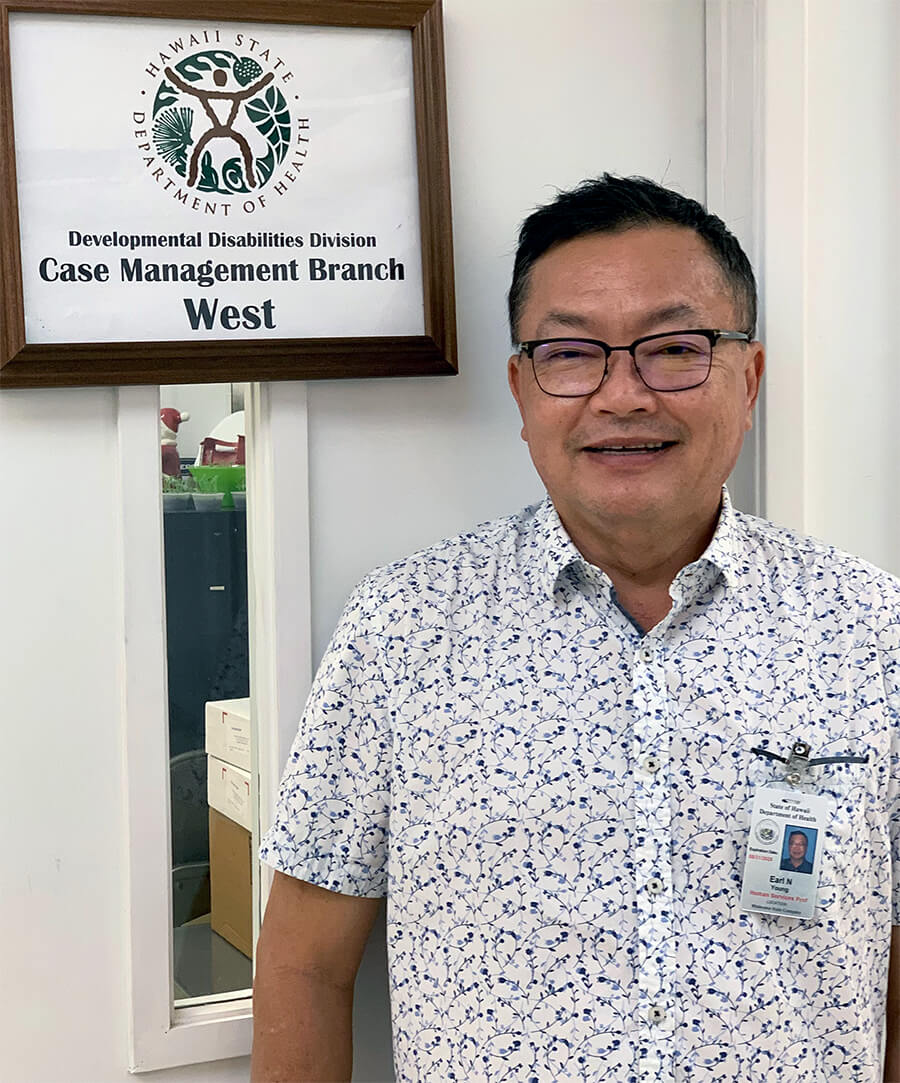
HONOLULU – What was already a demanding process to provide services for a high-risk group of individuals with intellectual and developmental disabilities has become even more challenging in the wake of the coronavirus crisis. For Earl Young and his staff of case managers, it is the new norm.
“The COVID-19 pandemic is unprecedented and the most difficult challenge our division has ever faced,” said Young, a supervisor in the case management branch at the Hawaii Department of Health’s developmental disabilities division. “Our entire framework of providing case management services to a very vulnerable special needs population has been the catalyst of everyday life since the start of the pandemic.”
Some of the critical services are not easily available right now, services that these individuals and families rely on for daily living –including adult day health, skilled nursing, a personal emergency response system, specialized medical equipment and supplies, and much more.
“We have been challenged with assuring that existing services either continue or are supplemented with additional supports. Many challenges come from our provider network where some of the providers have had to close their operations due to the pandemic,” said Young.
One of the programs that has ceased is adult day health, forcing affected families to look for alternative service options such as personal assistance habilitation or individualized community learning services, or if necessary, respite services for the caregivers.
Young and his staff use a Medicaid 1915(c) Home and Community-Based Services (HCBS) Waiver to provide a system of services and support through state and federal funding.
“When a service provider is unable to provide a specific level of care, other services and providers need to be arranged,” said Young. “In order to assure the continuity of care for our population, a special application needs to be submitted to the Centers for Medicaid and Medicare Services that basically allows for waiving some of the requirements to initiate and change an individual’s services and provides flexibility in funding sources.”
This application, called Appendix K, is only used during an emergency. With the outbreak of COVID-19, the application was officially approved and became effective on March 1, 2020, for a one-year period.
“We have started to receive requests for temporary changes in services and supports needed to assure care continues to be provided for people with developmental and intellectual disabilities,” added Young. “We have been working tirelessly seven days a week to assure that every possible scenario is addressed.”
As the pandemic continues, Young anticipates many families will require additional help. Young’s office remains operational and continues to process applications for eligibility and to ensure services are provided during the COVID-19 emergency. Case managers are available via telephone, email or video conferencing and continue to work with providers.
“Each individual’s situation is unique, and case managers develop a plan with each person’s desired outcomes and goals in mind through planning and coordination of services,” said Young. “What makes this whole situation complicated is being able to provide continued care and services at the same time we are trying to be safe and healthy without direct interaction with our clients.”
As essential workers, Young and his staff go in to work every day while taking the necessary safety precautions.
They’ve also been working at home. “It’s been many, many hours of Zoom conference calls, including on the weekends,” Young said.
“We are fully committed to our work. Our goal first and foremost is to help our participants and their families, providing them with the support and services so they can live safe, healthy and meaningful lives in the community,” he said. “We won’t stop working to make sure that continues, pandemic or not.”